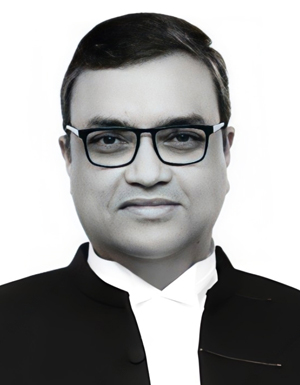
Meet Justice Dipankar Datta and his Notable Judicial decisions
Justice Dipankar Datta, born on February 9, 1965, is a sitting judge of the Supreme Court of India, with a distinguished judicial and legal background. He comes from a family steeped in the law: his father, Salil Kumar Datta, was a judge of the Calcutta High Court, and his brother-in-law, Amitava Roy, served as a Supreme Court judge. Justice Datta graduated in law from Hazra Law College, University of Calcutta, in 1989, and began his legal practice at the Calcutta High Court, later serving as Counsel for the Union of India and as Junior Standing Counsel for the State of West Bengal.
Justice Datta was elevated as a permanent judge of the Calcutta High Court in 2006, serving there for nearly 14 years. In April 2020, he became the Chief Justice of the Bombay High Court, where he was noted for his administrative leadership and for presiding over critical cases during the COVID-19 pandemic. He was appointed to the Supreme Court in December 2022, where he is expected to serve until February 2030.
In the Supreme Court, Justice Datta has authored judgments across criminal, service, civil, and property law, with a notable focus on constitutional principles and minority rights. He has written 39 judgments and participated in nearly 200 benches as of 2025.
Notable Judicial Decisions
Aligarh Muslim University Minority Status Case (2024):
Justice Datta was part of the seven-judge Constitution Bench that reconsidered the minority status of Aligarh Muslim University (AMU). In a significant dissent, he argued that minority rights under Article 30 could not be retroactively applied to pre-Constitution institutions. He disagreed with the majority’s view that the manner of "establishment" alone determined minority status, emphasizing that the Muslim community had not intended to administer AMU under the 1920 Act, thus affecting its minority character.
EVM-VVPAT Verification Case (2024):
In Association for Democratic Reforms v Election Commission of India, Justice Datta, with Justice Sanjiv Khanna, rejected a plea for 100% VVPAT verification of EVM votes. He reasoned that the EVM-VVPAT system was “distinctly more satisfactory” than paper ballots, noting the seven-second VVPAT display as sufficient for voter confidence and fulfilling the right to know under Article 19(1)(a).
Justice Datta is recognized for his clarity, principled dissents, and commitment to constitutional values. His judgments reflect a careful balance between legal precedent and evolving social realities, making him a significant voice in contemporary Indian jurisprudence.












comments